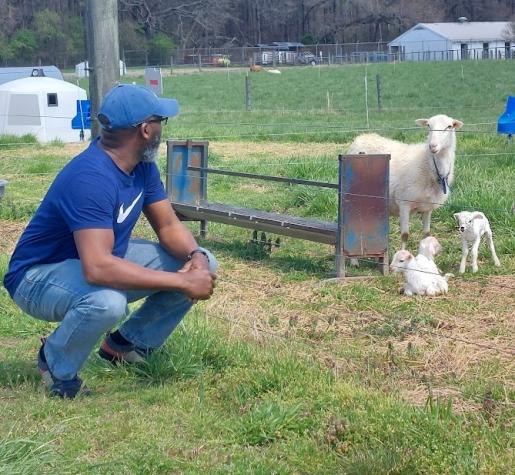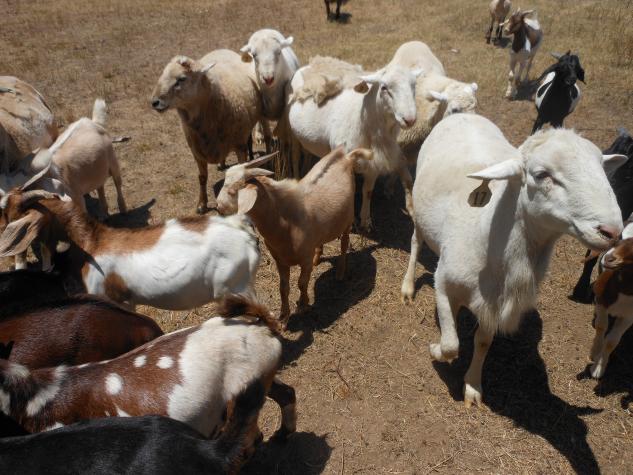OSCEOLA, Mo. – Fall is the natural mating season for sheep and goats, and University of Missouri Extension has a new publication for producers on Breeding Season Considerations for Sheep and Goats.
MU Extension small-ruminant specialist David Brown said peak fertility for sheep and goats is late September through November, but some breeds will cycle in the spring and have lambs/kids in the fall.
“Proper understanding of the reproductive system of the animals helps producers to use their resources wisely and prepare for the breeding season,” Brown said. “This is extremely important for producers who are experiencing their first breeding cycle.”
Reproductive health of the male
Producers should conduct the breeding soundness exam (BSE) before the breeding season to reduce risk of breeding failure. The BSE consists of a physical examination, inspection of the reproductive organs, semen collection and sperm evaluation. Producers should not consider BSE as dollar loss but as an investment with good return for their enterprise, Brown said.
Body condition scoring (BCS)
Producers should try to have ewes and does at a BCS of around 3 on a 5-point scale at breeding and increase slowly to an average body condition of 3.5 at lambing/kidding.
Flushing
Flushing is a management strategy to improve the ewe/doe’s condition just before and during the breeding season. Producers may choose to flush the animals by supplementing with a high-energy diet or relocating the animals to a high-quality pasture.
Nutrition of ram/buck
It is common for producers to neglect the male animals before the onset of the breeding season. This omission may lead to reproductive failure, Brown said. There is significant weight loss for rams and bucks during the breeding season. Increasing the plane of nutrition prior to mating to reach a target condition score of 3 to 3.5 on a 5-point scale is recommended. Good management practices before mating will lead to a more successful lambing and kidding season.
Body weight management of young ewes
Yearlings should reach at least 80% of their mature body weight before the onset of the breeding season. Improper body condition of ewes will affect embryonic survival.
The free publication is available at extension.missouri.edu/publications/g2611.
David Brown
MU Extension small-ruminant specialist David Brown observes a ewe with her lambs. Photo courtesy of David Brown.
Sheep and goats
Sheep and goats. A new MU Extension publication looks at preparing small ruminants for breeding season. Photo courtesy of David Brown.
Writer: Julie Harker

